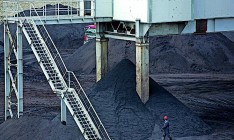Business
Energy sectorRussia forces Ukraine to buy coal in the Donbas

Last Friday, Premier Arseniy Yatsenyuk said that Russia blocked shipment of coal purchased by Ukraine in the Rostov oblast. Problems with the shipment of coal are also being created in other regions of Russia. While in the past they were due to purely technical reasons today the local authorities are officially demanding that fuel similar to that produced in the Donbas not be delivered to Ukraine.
Lack of supply
At the end of last week, Governor of the Kemerovo region Aman Tuleyev appealed to the owners of Kuzbass coal companies not to deliver to Ukraine brands of coal produced in the Donbas region. His directive was motivated by the fact that the deliveries of coal from Russia are contributing to the economic blockade imposed by official Kyiv against the population of the self-proclaimed Luhansk and Donetsk people’s republics (LPR and DPR).
Some experts believe that Russia is manipulating such statements in an attempt to persuade Ukraine to procure coal in the occupied territories. As a result, Ukraine’s thermo-electric generating sector could fall short of 3 mn t of “black gold”.
Representatives of DTEK reported that the company signed contracts for the supply of 1.2 mn t of A and T coal brands from Russia for the period from December 2014 to January 2015. Centrenergo has an agreement with Russia for the supply of 1.7 mn t of coal, said the company’s spokesperson Oksana Yegorova. “Centrenergo is in talks with all possible suppliers of coal, but the most attractive offers are those of Russian companies,” she added.
In order to cover for the potential shortage Ukraine’s thermo-electric generating industry is seeking new opportunities for the supply of solid fuel. In particular, DTEK is in talks with the Republic of South Africa on additional purchases of 300,000 t of coal and is considering options for a new order of fuel in Australia. DTEK has already contracted the supply of 250,000 t of coal in December and January from the Republic of South Africa and imported 90,000 t from Australia. “Further shipments from Australia are being considered taking into account the particularities of logistics. The fact is that delivery takes approximately 45 days,” said representatives of DTEK. As of December 18, coal reserves in warehouses of Ukrainian power stations amounted to 1.35 mn t. Over the past eight days they shrunk by 102,800 t. Experts believe that such an amount will be sufficient for only five to seven days of operation.
Money block
The matter with payments for coal is no better. Representatives of DTEK say the company buys fuel on terms of full prepayment. From August to November the holding has imported more than 1.4 mn t of coal for UAH 1.5 bn. The company suggests that in terms of growth of the electricity debt to thermo-electric generating companies and devaluation of the hryvnia the issue of financing of supplies of imported coal is particularly pressing.
“We need real market regulation on the part of the National Commission for State Energy and Public Utilities Regulation (NCSEPUR). Since August DTEK has been proposing alternate solutions that would ensure timely provision of coal to thermo-electric generating companies prior to the heating season, but they were not accepted,” complained representatives of the holding. According to the company’s estimates, over 10 months of 2014 the state represented by state enterprise Energorynok underpaid Ukraine’s thermo-electric generating sector UAH 3.3 bn, including UAH 2.7 bn to DTEK’s power plants. And given the underpayments in November formed due to the critical level of payments for electricity from mines, water treatment plants and state-run enterprises operating in the ATO zone, the total underpayment will be UAH 4.2 bn.
The Council of the Wholesale Electricity Market proposed to raise the necessary funds and sent its proposals to the VR Committee on Fuel and Energy, Nuclear Policy and Nuclear Safety. It also intends to address the NSDC with a list of necessary measures, said Chairman of the WEM Council Borys Lisoviy. He added that the WEM Council offered priority measures for stabilization of the situation in the energy sector, namely, adoption of a law on regulation of functioning of the coal and gas market in this period, adoption of laws on opening the coal market and introduction of its compulsory sale through exchange markets. The council also insists that the issue of payment for electricity through special accounts of enterprises in the ATO zone, introduction of payment mechanisms for provision of electricity to other categories of consumers, including the population residing in the ATO zone, and provision of a credit limit increase to Oschadbank from the NBU in order to expand lending to the energy market be considered.
Blackouts
The shortage of coal in the country has already led to a shortage in electricity production, which resulted in widespread rolling blackouts throughout the country. With every passing day the shortage of energy is on the rise. For example, last Friday Ukrenergo introduced schedules of power outages for 5.3 GW (though only half of such a capacity was planned), which corresponds to the imbalance of power in the country’s integrated power system. The imbalance was caused by emergency shutdowns of 28 units at thermal power plants, 19 of which were shut off due to low reserves of coal and lack of water resources for hydroelectric power plants.
The fact that the government is ready to fully liberalize import of electricity begs the question about the depth of the problems in the energy sector. On December 19 Premier Arseniy Yatsenyuk said the Cabinet decided to allow any company operating on the electricity market to import electricity directly.






 of the agreement of syndication with Financial Times Limited are strictly prohibited. Use of materials which refers to France-Presse, Reuters, Interfax-Ukraine, Ukrainian News, UNIAN agencies is strictly prohibited. Materials marked
of the agreement of syndication with Financial Times Limited are strictly prohibited. Use of materials which refers to France-Presse, Reuters, Interfax-Ukraine, Ukrainian News, UNIAN agencies is strictly prohibited. Materials marked  are published as advertisements.
are published as advertisements.